Photographs: Reuters/Akhtar Soomro
The seeping unhappiness among soldiers unable to reach out to their families affected by the disaster is not only likely to affect its counter-insurgency performance, but it would also add to the sympathy for the Taliban in the lower ranks, says B Raman
More people were killed and more material damage was caused by the quake in Pakistan-Occupied Kashmir and some parts of the North-West Frontier Province, now called Khyber Pakhtunkwa, in 2005 than by the recent floods, but the fatalities and damages were confined to a small geographic area. Moreover, there was no long-term damage to Pakistan's economy. Former Pakistan president Pervez Musharraf, who was then in power, got over the initial bungling in disaster management and ensured that the army and the civil administration worked together while dealing with the disaster. He did not have to worry much about the impact of the quake on the morale of the army since very few families of serving soldiers were affected.
The disaster caused by the recent floods in Pakistan was spread over a large geographic area extending right across Pakistan. It has caused severe damage to Pakistan's agricultural economy. Many of the strategically important and sensitive areas of Pakistan were affected -- particularly in Punjab and Khyber Pakhtunkwa. Those are the areas from which both the Pakistan Army and the so-called Pashtun and Punjabi Talibans make their recruitment.
...
Unable to reach out to kin, Army unhappy
Image: The recent floods in Pakistan affected a large geographical areaPhotographs: Reuters/Akhtar Soomro
General Ashfaq Parvez Kayani, chief of the army staff, who used to be viewed as the soldiers' general, has lost some of his shine. His recent stoppage of logistic supplies to the North Atlantic Treaty Organisation troops in Afghanistan in retaliation for the deaths of two para-military soldiers in a NATO helicopter raid into Pakistani border areas was an attempt to regain his shine as the soldiers' general. The soldiers, whose families have been affected by the floods, are unhappy with him for two reasons. Firstly, for failing to attend to their problems and secondly, for failing to force the civil administration to help their families.
More sympathy for Taliban
Image: A flood-affected family moves out to safer regionsPhotographs: Reuters/Athar Hussain
The army was active in rescue missions at the height of the floods, thereby winning the praise of many civilians, but its role in rehabilitation measures has been very limited. Moreover, the Army is blamed for the inadequacies of the civilian administration. "Musharraf would have handled the situation differently," is the comment one often comes across among the lower ranks of the Army.
Slowing down jihad to win public support
Image: Children outside a relief camp in Nowshera, in Khyber PakhtunkhwaPhotographs: Reuters/Adrees Latif
The impact of the floods on the jihadi organisations has been different. They have stepped up the assistance for putting the rural economy back on its feet in the form of seeds and fertilisers and contribution of voluntary labour by their cadres and humanitarian workers to bring the damaged land holdings back under cultivation.
Terror groups have allowed or even encouraged their trained jihadis to go back to their villages to help their families in coping with the situation. Hence, the drop in recruitment and in the number of terrorist attacks by these organisations since the floods. They are prepared to accept a slowing down of their jihad in the interest of keeping up the morale of their cadres and winning more support from the rural areas.
A new factor in Pakistan's future woes
Image: Villagers displaced by floods build a makeshift tent in Sindh provincePhotographs: Reuters/Akhtar Soomro
The political leadership has failed to evaluate the strategic consequences of the floods from the point of view of damage to the rural agricultural economy and the fight against extremism and terrorism. There has been very little co-ordination between the army and the civilian administration in dealing with the situation. The likely impact of the floods on military morale has not been properly analysed and corrective action has not been taken.
The government of Pakistan and its international backers have been behaving as if all that was needed was more and more money. Financial assistance has been plenty, but this assistance has not addressed the problems of the rural families, which are the mainstay of the army as well as the Taliban.
The result: A situation that could lead to greater instability in Pakistan and provide a more fertile soil than in the past for the spread of jihadi terrorism. An unhappy soldier class could become a new factor in Pakistan's future woes.
The writer is additional secretary (retired), Cabinet Secretariat, Government of India, New Delhi, and, presently, director, Institute For Topical Studies, Chennai

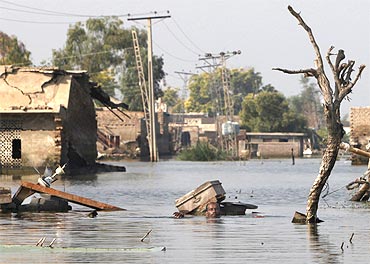
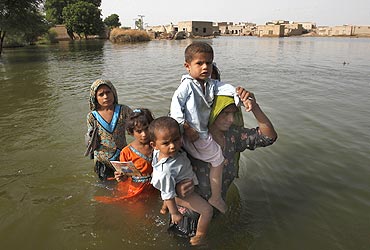
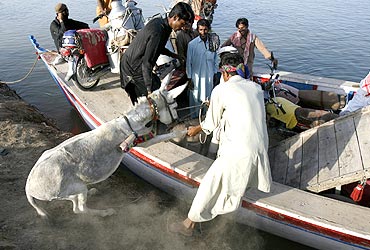
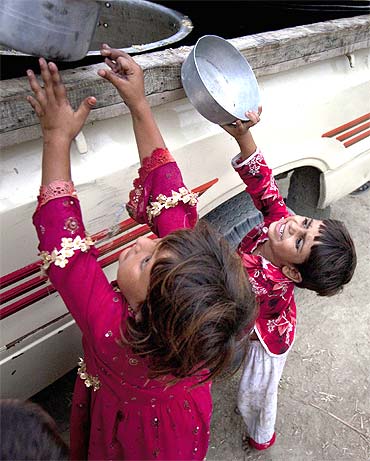
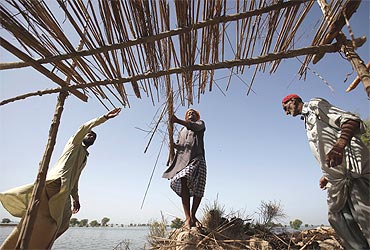
article